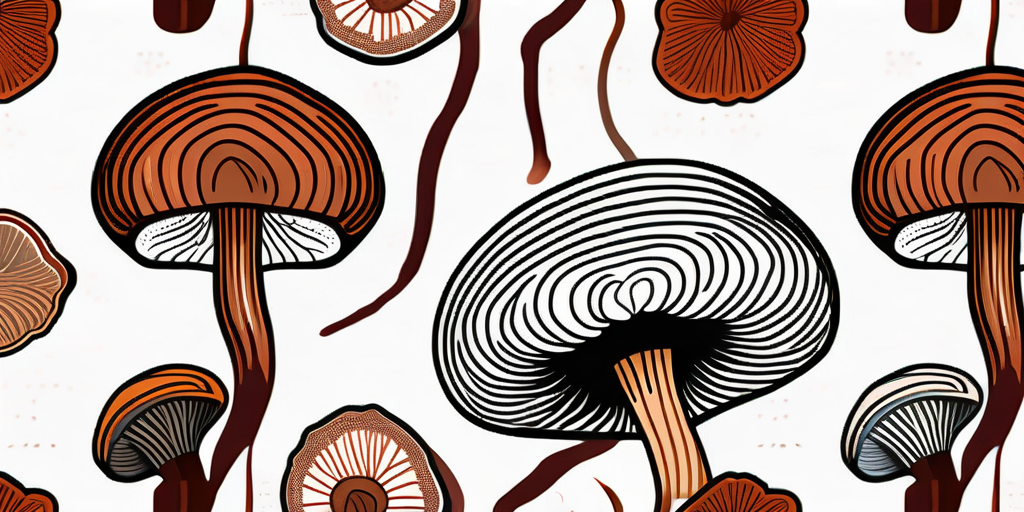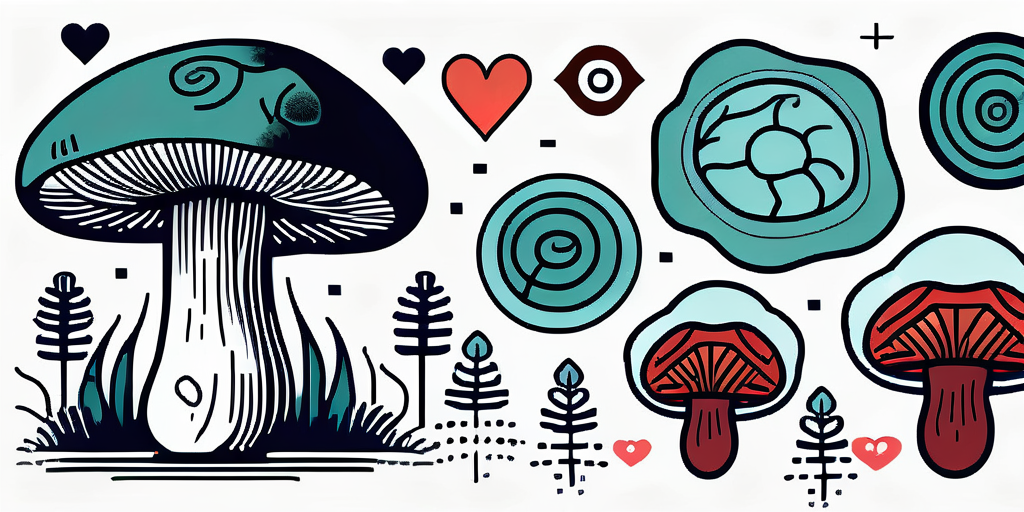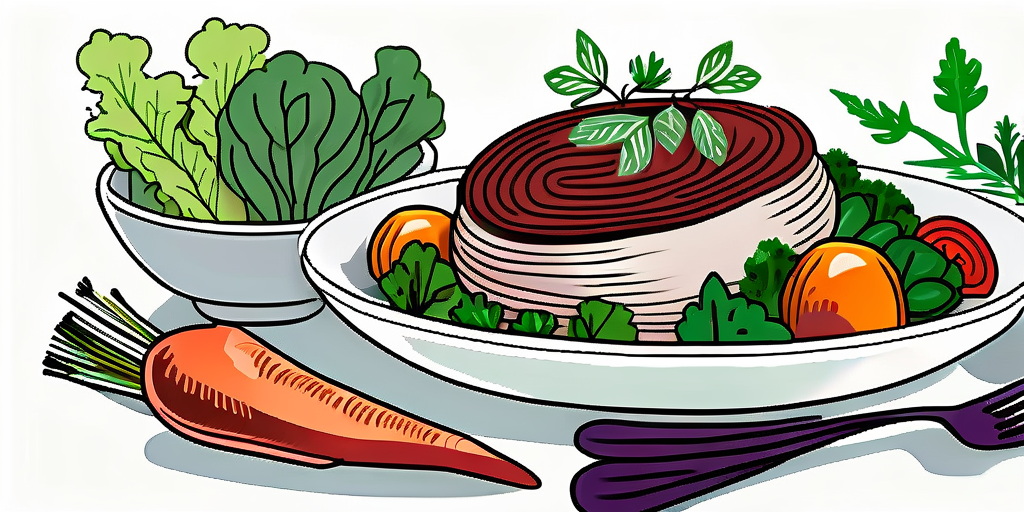Reishi Revolution: How the "Mushroom of Immortality" Boosts Health

Reishi (Ganoderma lucidum), also known as the "Mushroom of Immortality," has been revered for centuries for its potential health benefits. In this article, we will explore the various aspects of this remarkable fungus and how it can boost your overall health and well-being.
Understanding the Reishi Mushroom
Reishi mushroom has a long and fascinating history that traces back thousands of years. It has been used in traditional medicine practices, particularly in Asian cultures like China, Japan, and Korea. The mushroom's scientific name, Ganoderma lucidum, refers to its glossy appearance.

Reishi mushroom, also known as Lingzhi, has captivated the attention of people for centuries. Its unique shape and vibrant colors make it a sight to behold. The mushroom's cap is usually reddish-brown, with a shiny surface that reflects light, giving it an almost magical glow.
The History and Origin of Reishi Mushroom
The use of reishi mushroom dates back to ancient China, where it was considered a symbol of longevity and good health. Emperors and nobles sought after this precious mushroom, using it to strengthen the body and promote vitality. The legends surrounding reishi mushroom are as intriguing as its appearance.
According to ancient Chinese texts, the discovery of reishi mushroom is credited to Emperor Shennong, who is known as the "Divine Farmer." He was said to have tasted hundreds of herbs and plants to understand their medicinal properties. When he consumed reishi mushroom, he experienced a surge of energy and a sense of well-being.
Since then, the popularity of reishi mushroom has spread throughout Asia. It has become a staple in traditional medicine practices, with practitioners using it to treat a wide range of ailments, from boosting the immune system to improving liver function.
The Nutritional Profile of Reishi Mushroom
While reishi mushroom is not typically consumed for its nutritional value, it does contain various bioactive compounds that contribute to its purported health benefits. These compounds include polysaccharides, triterpenoids, and amino acids, which are believed to have antioxidant and immune-enhancing properties.
Polysaccharides, in particular, are a type of complex carbohydrate found in reishi mushroom. These compounds have been shown to have anti-inflammatory effects and may help support the immune system. Triterpenoids, on the other hand, are responsible for the bitter taste of reishi mushroom and are believed to have anti-cancer properties.
Reishi mushroom also contains a variety of essential amino acids, which are the building blocks of proteins. These amino acids play a crucial role in various physiological processes, including muscle growth and repair, hormone production, and immune function.
Research on the nutritional composition of reishi mushroom is ongoing, and scientists are continually uncovering new compounds and potential health benefits. While it may not be a significant source of vitamins and minerals, reishi mushroom offers a unique blend of bioactive compounds that make it a valuable addition to a healthy lifestyle.
The Health Benefits of Reishi Mushroom
Reishi mushroom has gained attention for its potential in supporting various aspects of health and well-being. Let's explore some of the key benefits associated with this "Mushroom of Immortality."

Reishi mushroom, also known as Ganoderma lucidum, is a type of mushroom that has been used for centuries in traditional Chinese medicine. It is highly regarded for its medicinal properties and has been referred to as the "elixir of life" and the "mushroom of immortality."
Immune System Support
One of the most well-known benefits of reishi mushroom is its ability to support the immune system. Research suggests that certain compounds found in reishi can enhance the activity of immune cells, helping to strengthen the body's natural defense mechanisms.
Studies have shown that reishi mushroom can stimulate the production of white blood cells, which are responsible for fighting off infections and diseases. This immune-boosting effect may help to prevent and alleviate various illnesses, including the common cold, flu, and even certain types of cancer.
Anti-Cancer Properties
Another intriguing area of study is reishi mushroom's potential anti-cancer properties. Some research indicates that certain compounds in reishi may have anti-tumor effects by inhibiting the growth and spread of cancer cells. However, further studies are needed to fully understand its role in cancer prevention and treatment.
Reishi mushroom contains a variety of bioactive compounds, including polysaccharides, triterpenes, and antioxidants, which have been shown to have anti-cancer properties. These compounds may help to suppress the growth of tumors, prevent the formation of new blood vessels that supply nutrients to cancer cells, and enhance the immune system's ability to recognize and destroy cancer cells.
Stress and Anxiety Reduction
Stress and anxiety are prevalent in today's fast-paced society. Reishi mushroom has been traditionally used as an adaptogen, a substance believed to help the body adapt to stress. It is thought to have calming effects on the nervous system, potentially reducing anxiety and promoting relaxation.
Reishi mushroom contains compounds that can help regulate the body's stress response by modulating the production of stress hormones, such as cortisol. By reducing the levels of these hormones, reishi mushroom may help to alleviate the symptoms of stress and anxiety, such as restlessness, irritability, and insomnia.
Heart Health and Blood Pressure Regulation
Reishi mushroom may also offer benefits for cardiovascular health. Some studies suggest that certain compounds in reishi can help regulate blood pressure and promote healthy circulation. These effects may contribute to the overall well-being of the heart and cardiovascular system.
Research has shown that reishi mushroom can help lower blood pressure by relaxing the blood vessels and improving blood flow. It may also help to reduce cholesterol levels and prevent the formation of blood clots, which can lead to heart attacks and strokes.
In addition, reishi mushroom has antioxidant properties, which can help protect the heart and blood vessels from damage caused by free radicals. By reducing oxidative stress and inflammation, reishi mushroom may help to prevent the development of cardiovascular diseases, such as atherosclerosis and heart failure.
How to Incorporate Reishi Mushroom into Your Diet
There are several ways to incorporate reishi mushroom into your diet, whether you prefer traditional or modern approaches.

Reishi mushroom, also known as Ganoderma lucidum, is a medicinal mushroom with a long history of use in traditional medicine practices. It has been highly regarded for its potential health benefits and is often referred to as the "mushroom of immortality."
Reishi Mushroom in Traditional Medicine
Reishi mushroom has been used in traditional Chinese medicine for centuries. It is believed to have a calming effect on the mind and body, promoting overall well-being. In traditional Chinese medicine, reishi mushroom is often prepared as a tea or decoction. This method involves simmering dried reishi slices or powder in water to extract its beneficial compounds.
The tea made from reishi mushroom has a slightly bitter taste, but it is often enjoyed for its potential health benefits. It is believed to support the immune system, improve sleep quality, and promote longevity.
Reishi Mushroom in Modern Cuisine
In addition to its use in traditional medicine, reishi mushroom has also found its way into modern cuisine. Its unique earthy flavor adds depth and complexity to various dishes.
Reishi mushroom can be incorporated into soups, stews, and stir-fries, enhancing both the nutritional value and taste of the meals. Dried reishi slices or powder can be used as an ingredient or garnish, adding a touch of elegance to your culinary creations.
Moreover, reishi mushroom is often used as a vegetarian alternative to meat in plant-based dishes. Its rich umami flavor makes it a popular choice among those following a vegetarian or vegan diet.
Supplements and Extracts: Another Way to Consume Reishi
If incorporating reishi mushroom directly into your diet seems challenging, dietary supplements and extracts are widely available in the market. These products typically contain concentrated forms of reishi mushroom, making it convenient to enjoy its potential health benefits on a daily basis.
Reishi mushroom supplements are available in various forms, including capsules, powders, and tinctures. They provide a convenient way to incorporate this medicinal mushroom into your routine, especially for those who may not enjoy the taste of reishi mushroom in its natural form.
It is important to note that while reishi mushroom is generally considered safe for most people, it is always advisable to consult with a healthcare professional before starting any new dietary supplement.
In conclusion, reishi mushroom offers a multitude of ways to incorporate it into your diet. Whether you choose to embrace its traditional roots or explore its modern culinary applications, reishi mushroom can be a valuable addition to your overall wellness journey.
Potential Side Effects and Precautions
While reishi mushroom is generally well-tolerated, it is essential to be aware of potential side effects and consider certain precautions.
Possible Interactions with Medications
Reishi mushroom may interact with certain medications, particularly those that affect blood clotting or blood pressure. If you are taking any medications, it is advisable to consult with your healthcare provider before incorporating reishi mushroom into your routine to ensure there are no adverse interactions.
Who Should Avoid Reishi Mushroom
Individuals who are pregnant, breastfeeding, or have a known allergy to mushrooms should avoid consuming reishi mushroom. Additionally, if you have a compromised immune system or are undergoing treatment for any medical condition, it is important to seek medical advice before beginning reishi supplementation.
In conclusion, reishi mushroom offers a remarkable array of potential health benefits, from immune system support to stress reduction and cardiovascular health. Whether you embrace its traditional use or explore modern culinary possibilities, incorporating reishi into your routine may contribute to your overall well-being. However, it is crucial to consult with your healthcare provider and consider individual circumstances before adding any new supplement or herb to your regimen. Embrace the reishi revolution and discover the potential of the "Mushroom of Immortality" for yourself!











